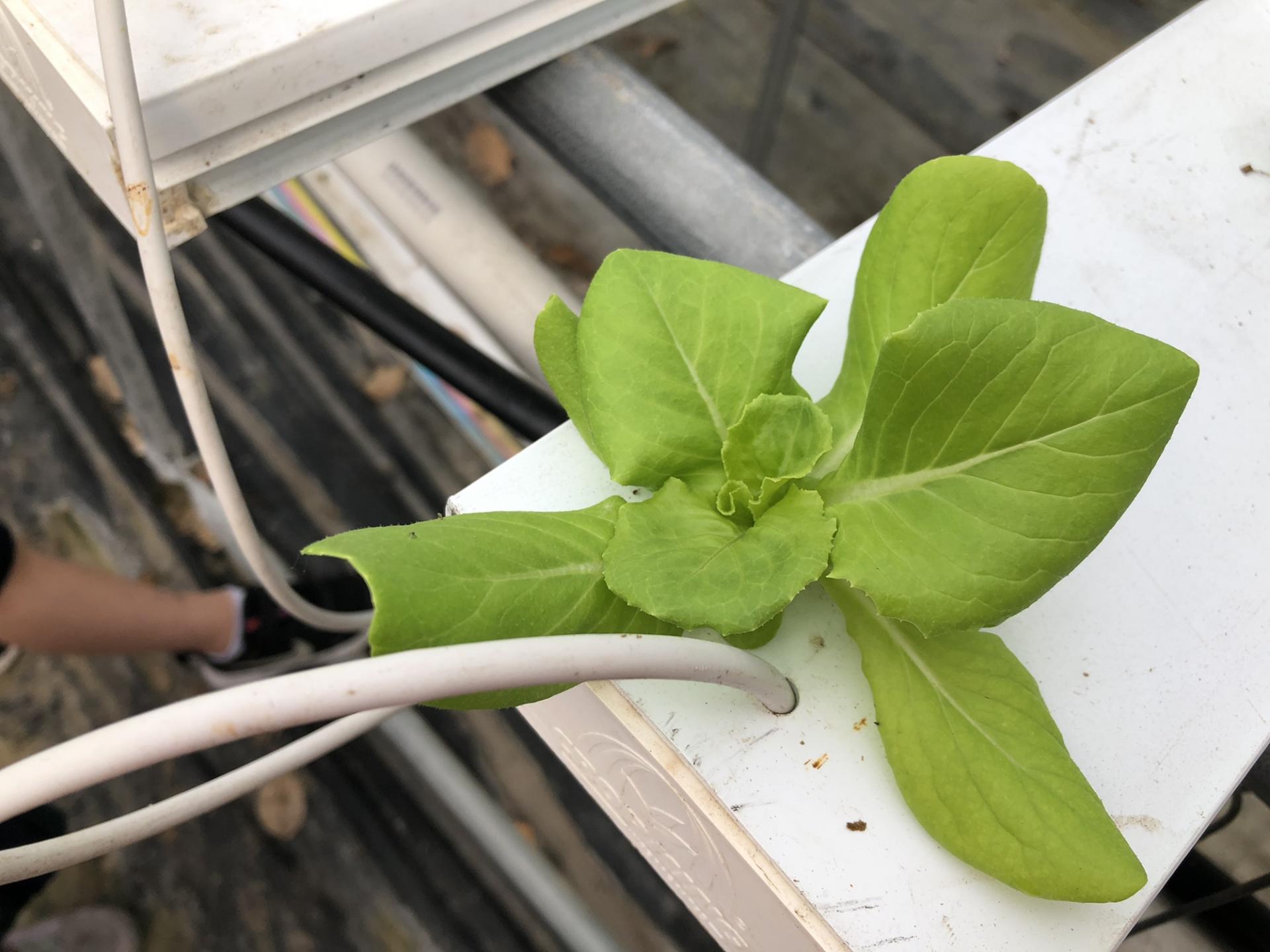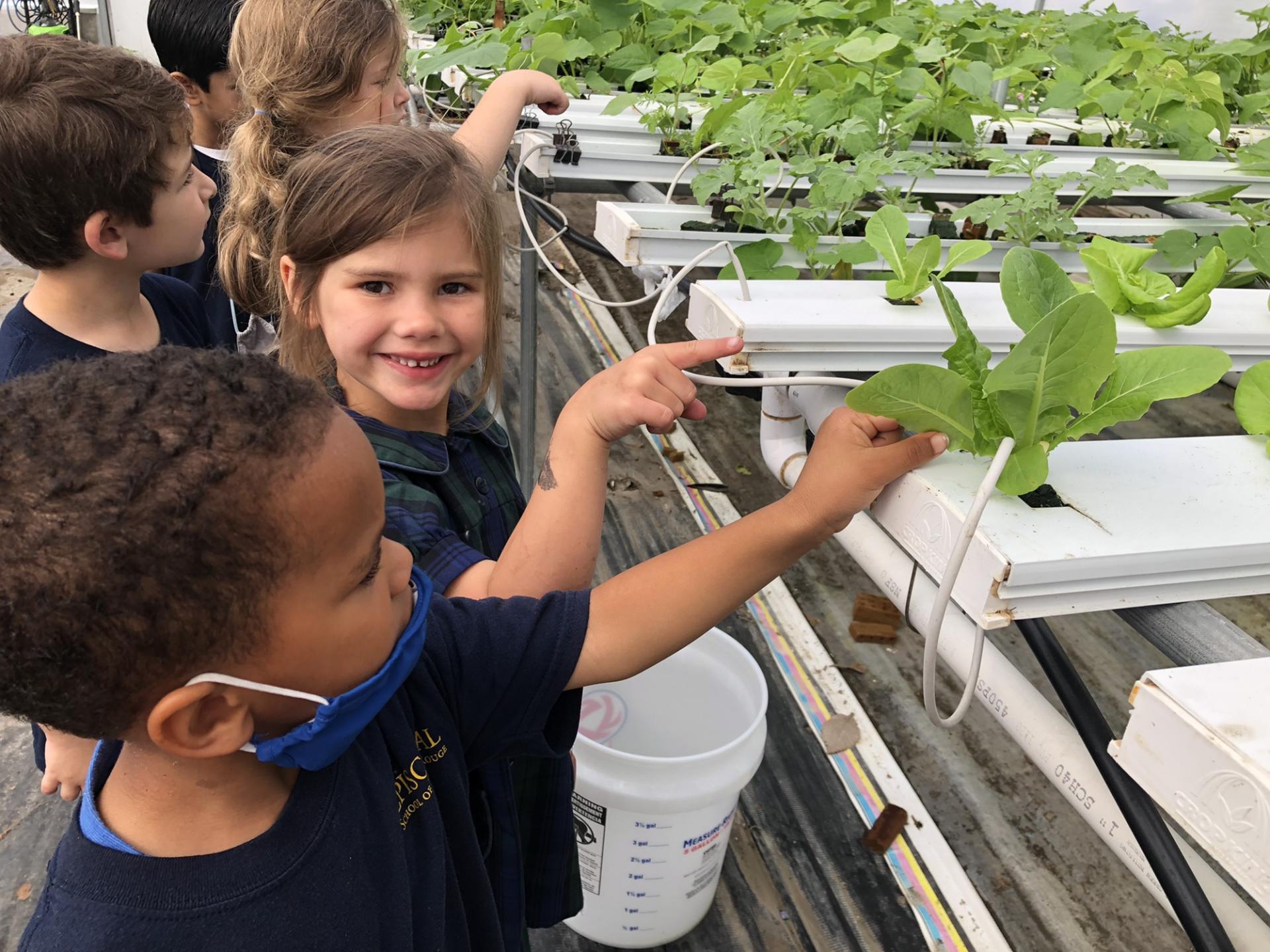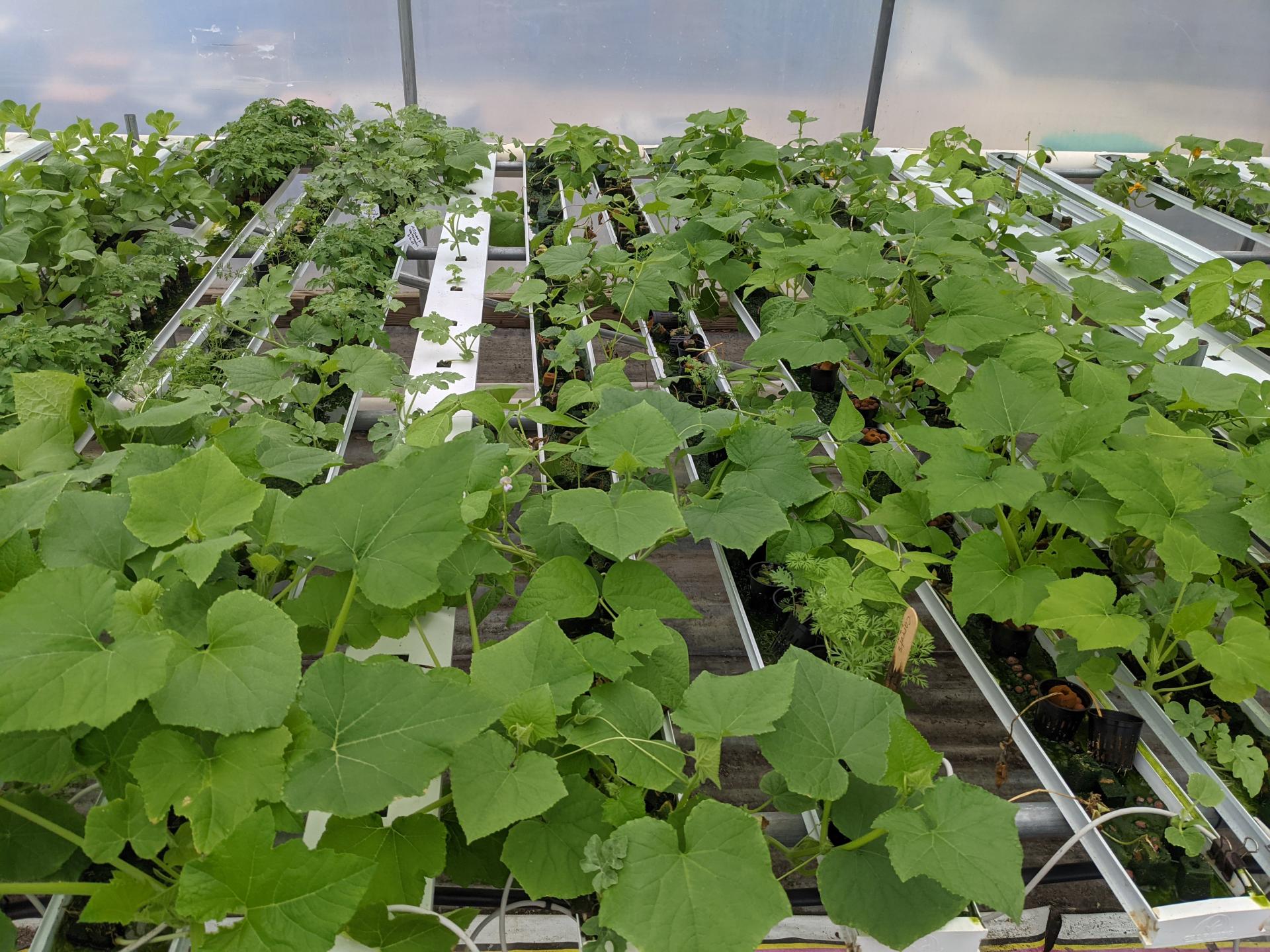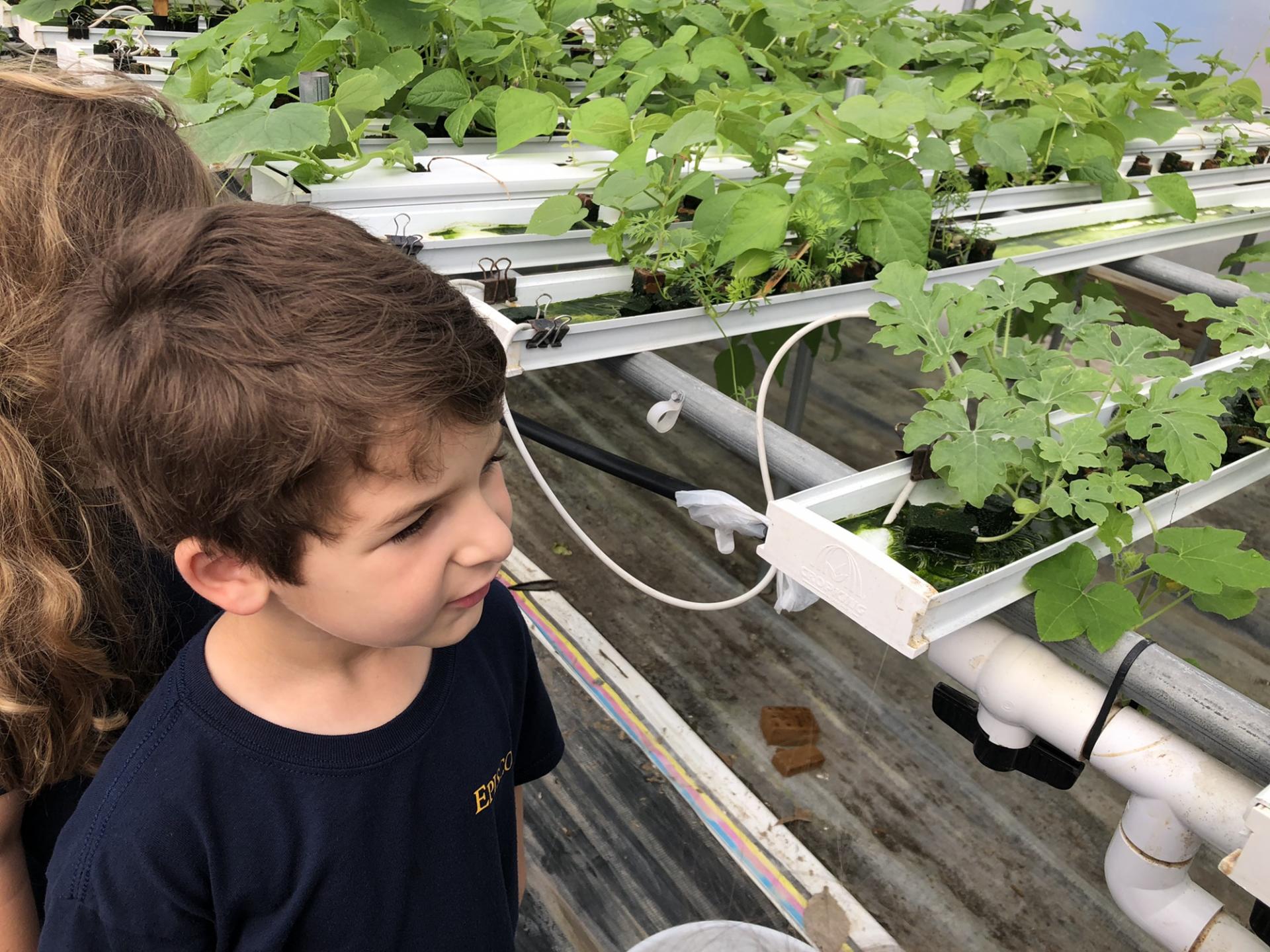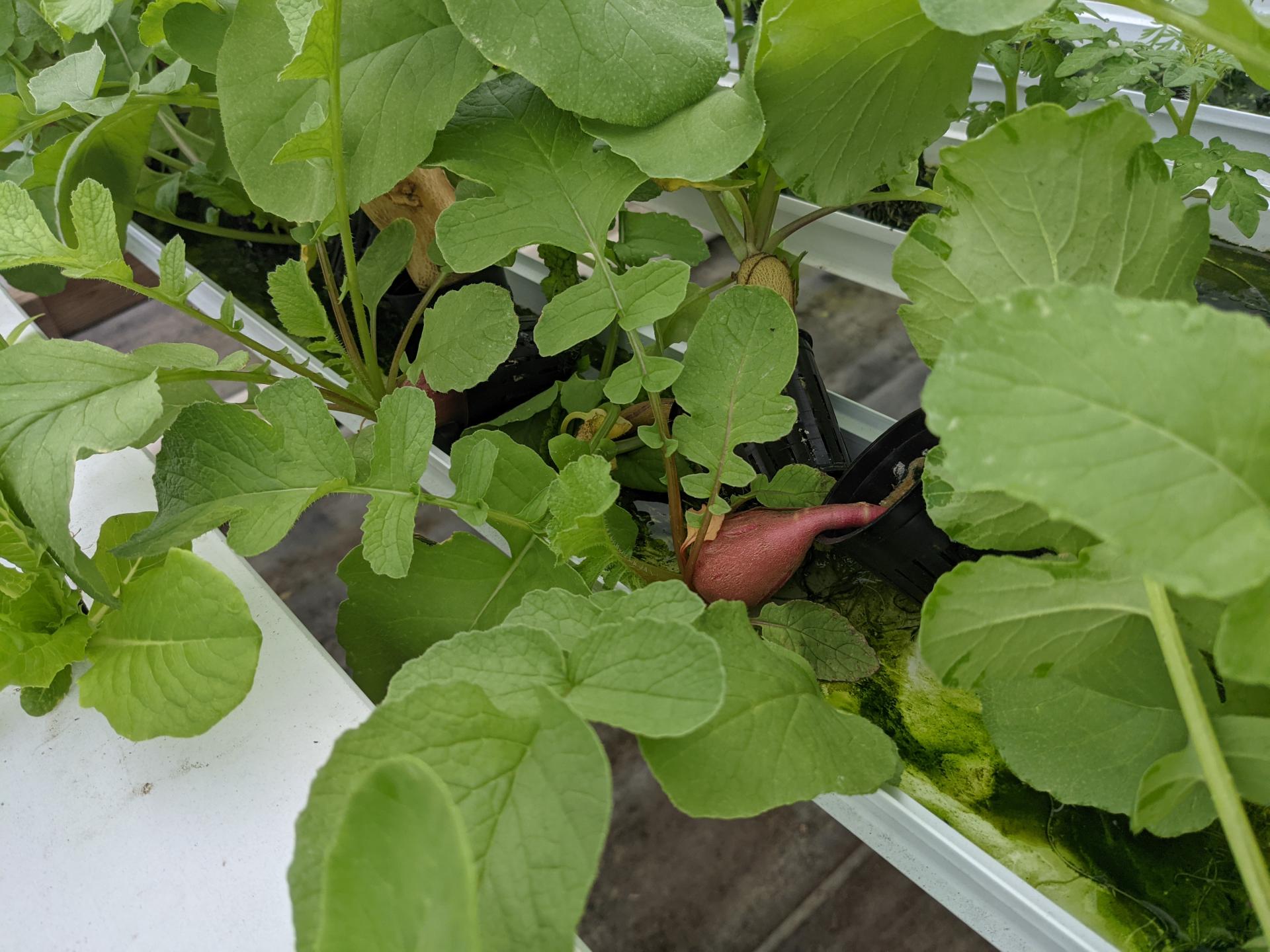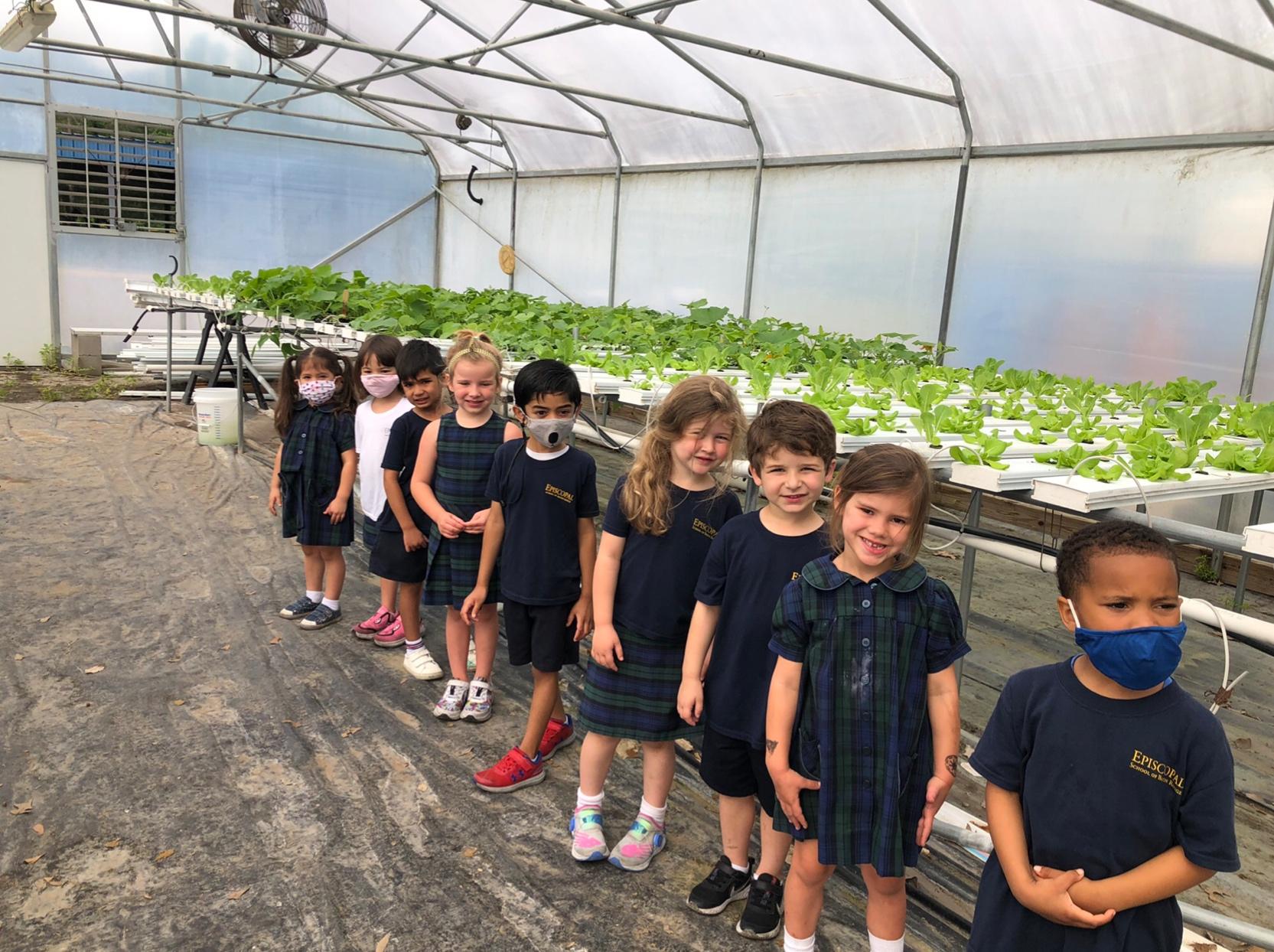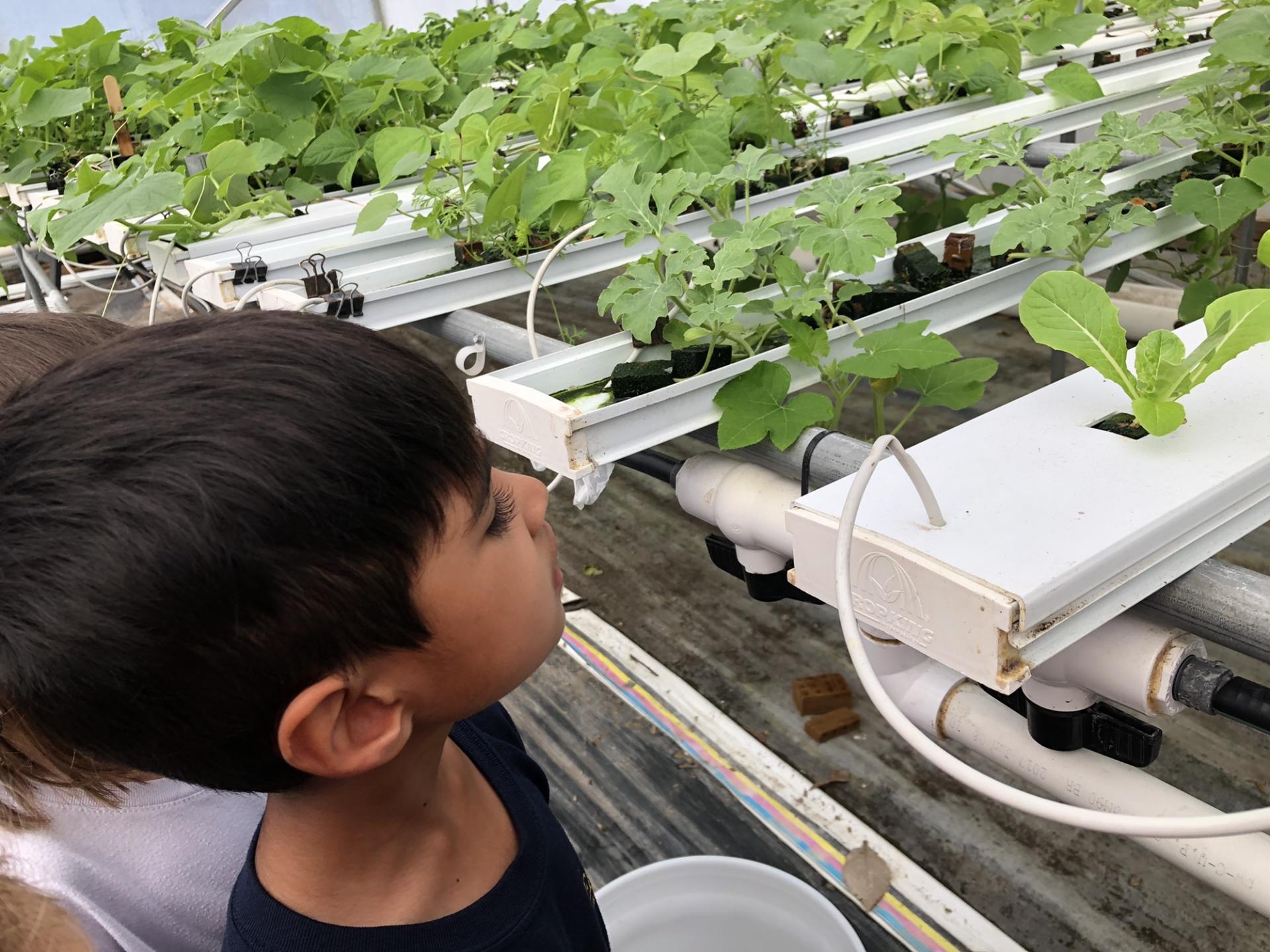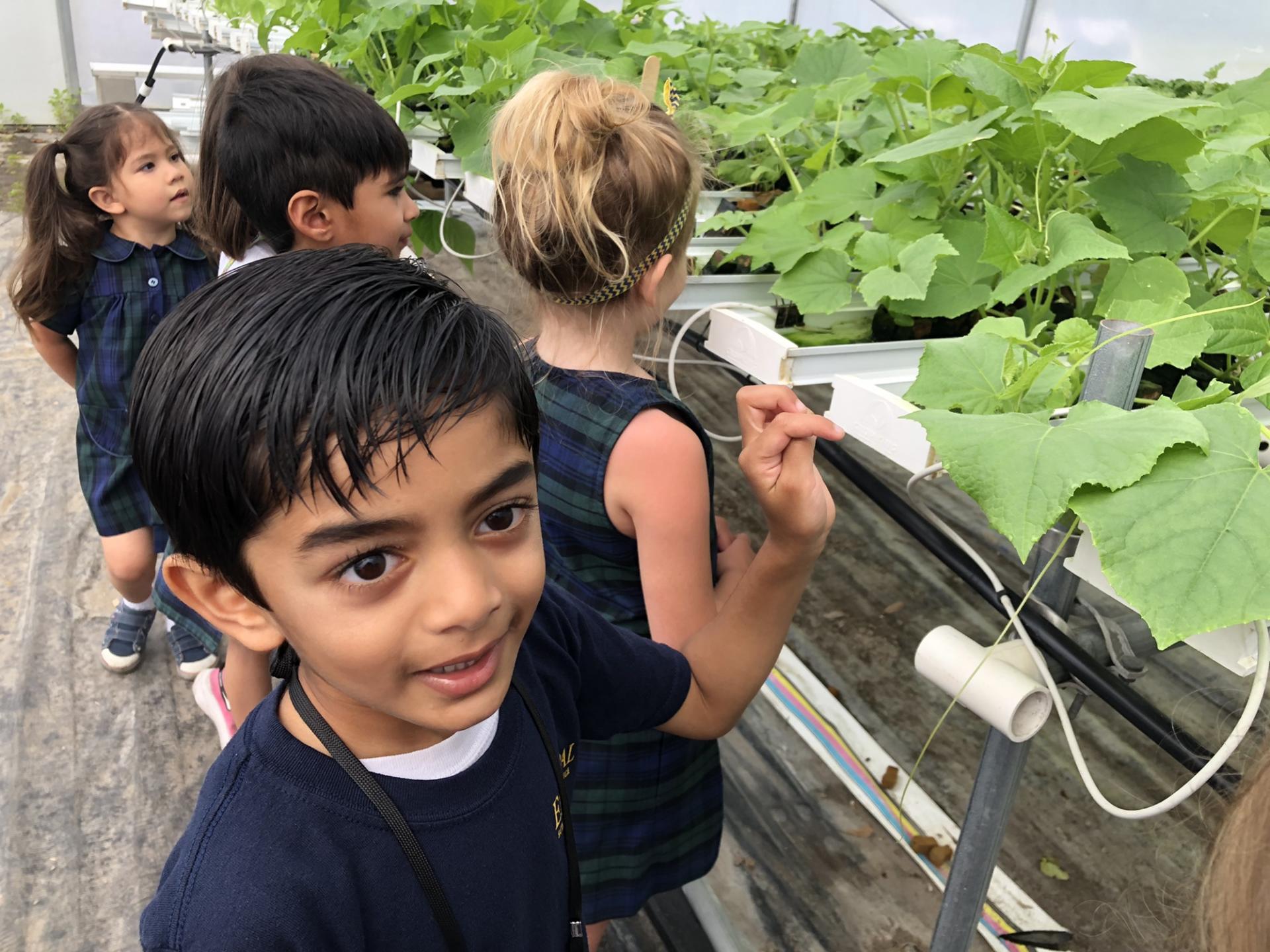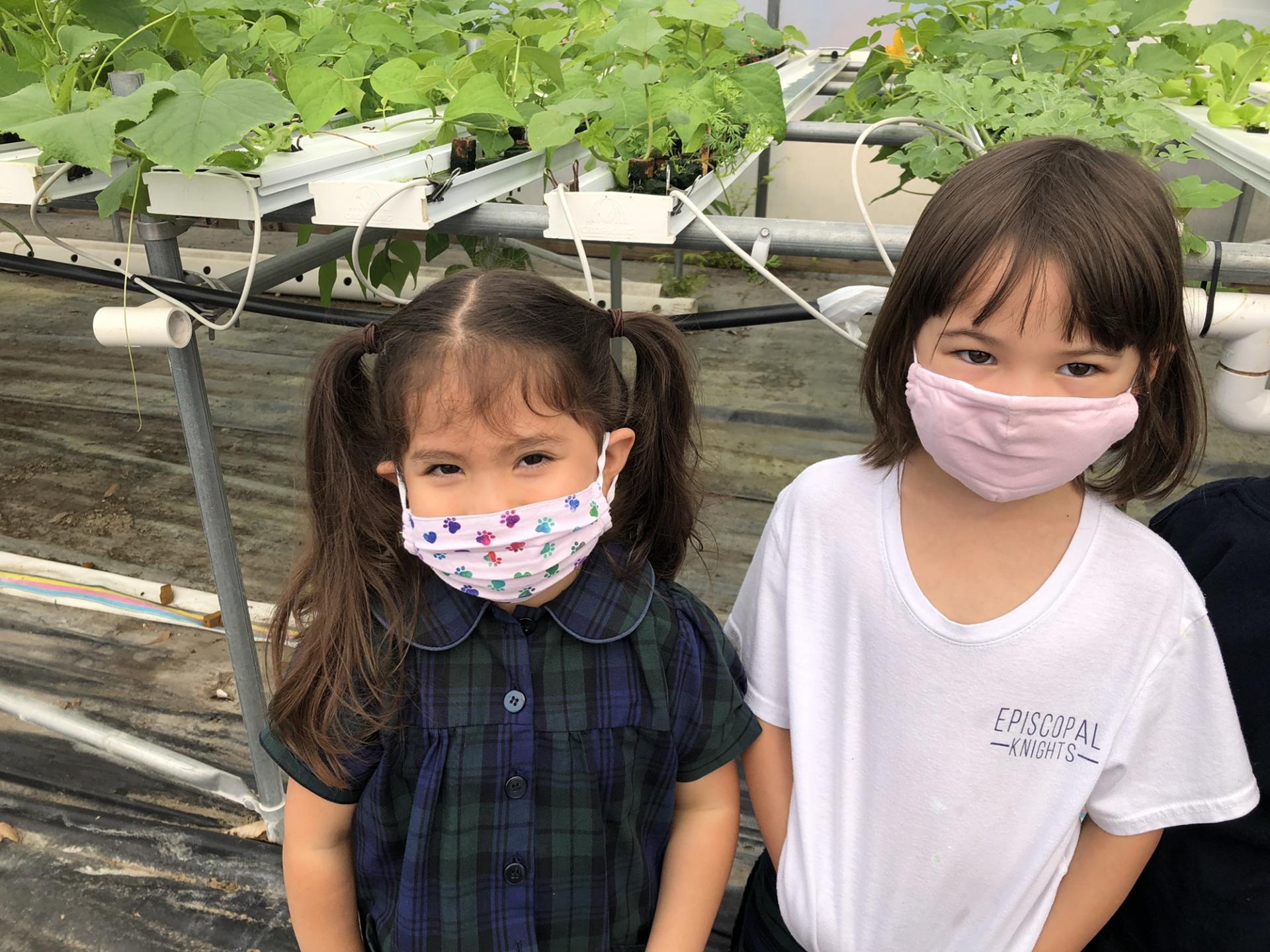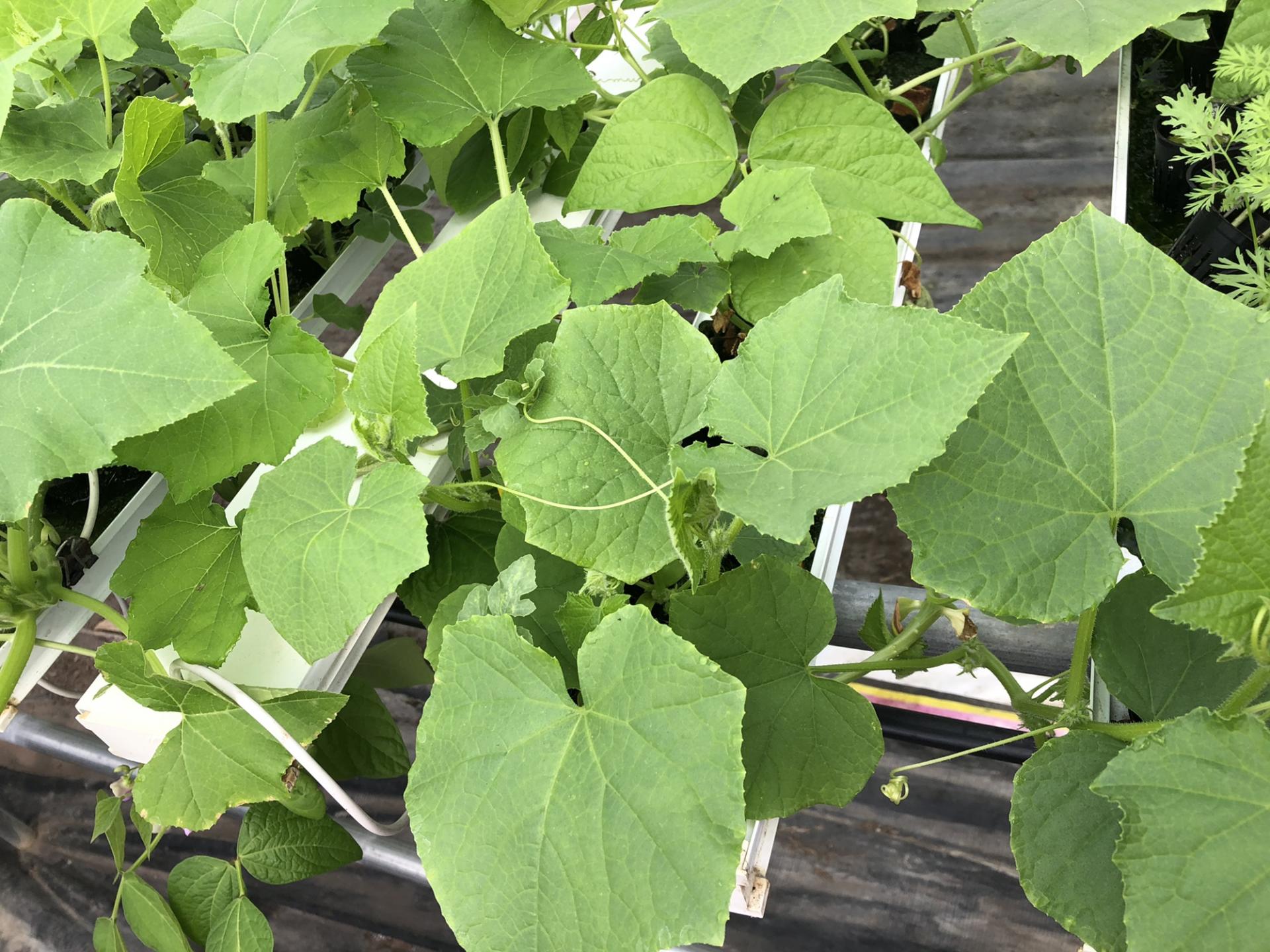- Discover Episcopal
- Admission
- Our Program
- Athletics
- Arts
- Spirituality
- Student Life
- Support Episcopal
- Alumni
- Parent Support
- Knightly News
- Contact Us
- Calendar
- School Store
- Lunch Menu
- Summer Camps
« Back
Episcopal Students are Going Green in the School's Hydroponic Greenhouse
April 26th, 2021

The Episcopal greenhouse by the numbers:
- 3,500 – number of seeds planted by Lower School students in the greenhouse hydroponic system (The majority of seeds planted are lettuce.)
- 6 weeks – minimum length of time it takes lettuce to grow before harvesting can begin
- Zero – the number of pesticides or insecticides used in the greenhouse
- Hundreds – the number of smiles that can be seen throughout Lower School when students from kindergarten through fifth grade visit the greenhouse


Hydroponics: Gardening for the Future
The greenhouse has come alive with the excitement of Lower School gardeners. From the littlest Knights to next year’s Middle Schoolers, students are planting seeds and preparing for their future. “We’re teaching kids something that they can do their whole life,” says QUEST Center Coordinator Dr. Elizabeth Lewis. She says while not all students currently grow food at home, the practice has real application for the future when students may live in crowded cities or even on another planet.
Episcopal Chef Pat Mahon explains that the crop is grown entirely in water using a nutrient film technique system. Hydroponic gardening is a process of growing plants in water, adding only soluble fertilizer and maintaining a precise pH balance. The plants thrive in this environment and can be harvested year-round.
Episcopal Chef Pat Mahon explains that the crop is grown entirely in water using a nutrient film technique system. Hydroponic gardening is a process of growing plants in water, adding only soluble fertilizer and maintaining a precise pH balance. The plants thrive in this environment and can be harvested year-round.


An Edible Education Starts with a Seed
The greenhouse, which was made possible by the Parents’ Guild several years ago, lets students get their hands dirty – or wet – while being introduced to the gardening process. The process is much more than simply planting a crop. The edible education begins with students learning more about how seeds grow. “Little kids are learning the life cycle,” says Dr. Lewis, who sees tremendous potential for hands-on learning and exploration in the greenhouse.
The learning doesn’t end when the plants hit the water. Teachers bring students back throughout the growing season to measure, chart, graph and even predict the size of their future crop. Dr. Lewis will introduce students to the concept of pollination and the importance of bees as students eventually try their hands at self-pollinating their little sprouts. In addition, the greenhouse teaches students about environmental stewardship. Hydroponic gardening reduces the overall carbon footprint when compared to that of commercially purchased food because the process doesn’t require gas-powered equipment or trucks to deliver it. Maintenance time and work hours are also significantly reduced.
The learning doesn’t end when the plants hit the water. Teachers bring students back throughout the growing season to measure, chart, graph and even predict the size of their future crop. Dr. Lewis will introduce students to the concept of pollination and the importance of bees as students eventually try their hands at self-pollinating their little sprouts. In addition, the greenhouse teaches students about environmental stewardship. Hydroponic gardening reduces the overall carbon footprint when compared to that of commercially purchased food because the process doesn’t require gas-powered equipment or trucks to deliver it. Maintenance time and work hours are also significantly reduced.



Cultivating Healthy Choices
This is a gift that keeps on giving and growing,” says Chef Pat, who points out that at full production the greenhouse can sustain the lettuce needs of the entire Episcopal student body. He says it just makes sense to use fresh, local produce whenever it’s available and that it’s an added bonus that the greenhouse produce is herbicide and pesticide free. There is also the hope that if students grow healthy food they will be more likely to make healthy choices.
It’s exciting to see everything that is being cultivated one seed at a time!
What are you growing this spring? Tell us about your garden in the comments section below.
It’s exciting to see everything that is being cultivated one seed at a time!
What are you growing this spring? Tell us about your garden in the comments section below.
The Episcopal School of Baton Rouge 2024-2025 application is now available! For more information on the application process, to schedule a tour, or learn more about the private school, contact us at [email protected] or 225-755-2685.
Posted in the categories All, Lower School.
Other articles to consider
 May16Episcopal Welcomes Father Patrick Edwards as New Head Chaplain
May16Episcopal Welcomes Father Patrick Edwards as New Head ChaplainLearn more about new Episcopal Head Chaplain Father Patrick Edwards.
See Details May16Lower School Happenings - May 2024
May16Lower School Happenings - May 2024There's excitement and joy in Lower School as students wrap up the school year. Check out the latest projects.
See Details May16Future Business Leaders Benefit from Spring Lessons/Community Support
May16Future Business Leaders Benefit from Spring Lessons/Community SupportEpiscopal students participated in two real-world learning experiences – the What’s Your Bright Idea? Episcopal Pitch Contest and the annual Burkenroad Reports Investment Conference.
See Details May8College Announcements 5.10.24
May8College Announcements 5.10.24Please join us in congratulating members of the Class of 2024 as they announce their college enrollment decisions.
See Details
Categories
- All
- Admission
- Athletics
- College Bound 2019
- College Bound 2020
- College Bound 2021
- College Bound 2022
- College Bound 2023
- College Bound 2024
- Counselors Corner
- Episcopal Alumni
- Giving
- Head Of School
- Lower School
- Middle School
- Spirituality And Service
- Student Work
- The Teachers' Lounge
- Upper School
- Visual And Performing Arts
Recent Articles
- 05/16/24Episcopal Welcomes Father Patrick Edwards as New Head Chaplain
- 05/16/24Lower School Happenings - May 2024
- 05/16/24Future Business Leaders Benefit from Spring Lessons/Community Support
- 05/8/24College Announcements 5.10.24
- 05/7/24Episcopal's Addisyn Botos Will Continue Track & Field at Southern Miss
- 05/7/24Spring Sports Success!
- 05/3/24Episcopal Audiences Wowed by "The Children of Willesden Lane"
- 05/3/24Service Learning & Community Impact Students Share Thoughts on Earth Day
- 05/2/242024 Mums of Alums Luncheon Draws Large Crowd of Supportive Mums
- 05/2/24College Announcements 5.3.24






